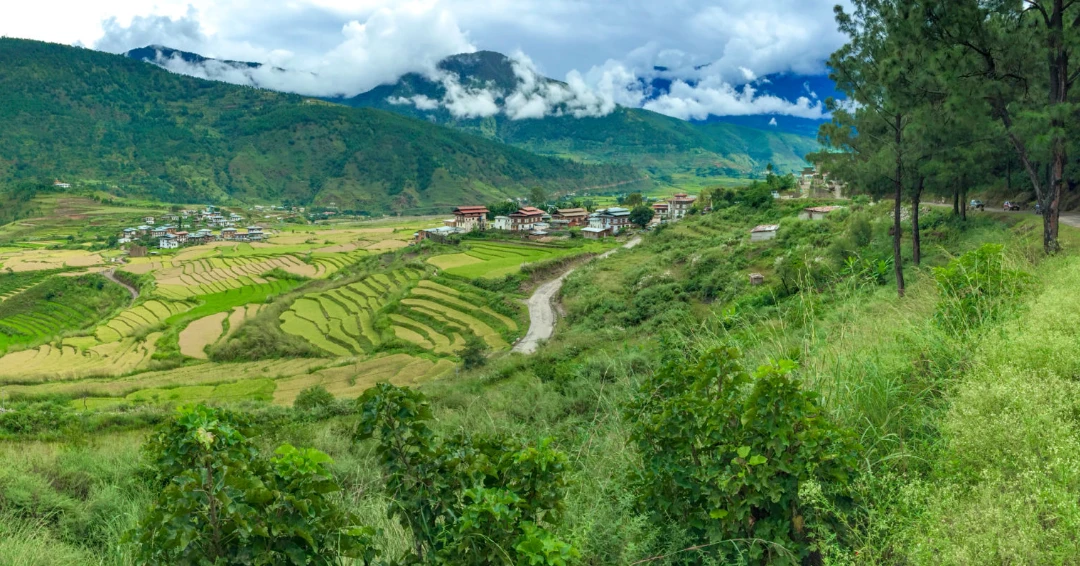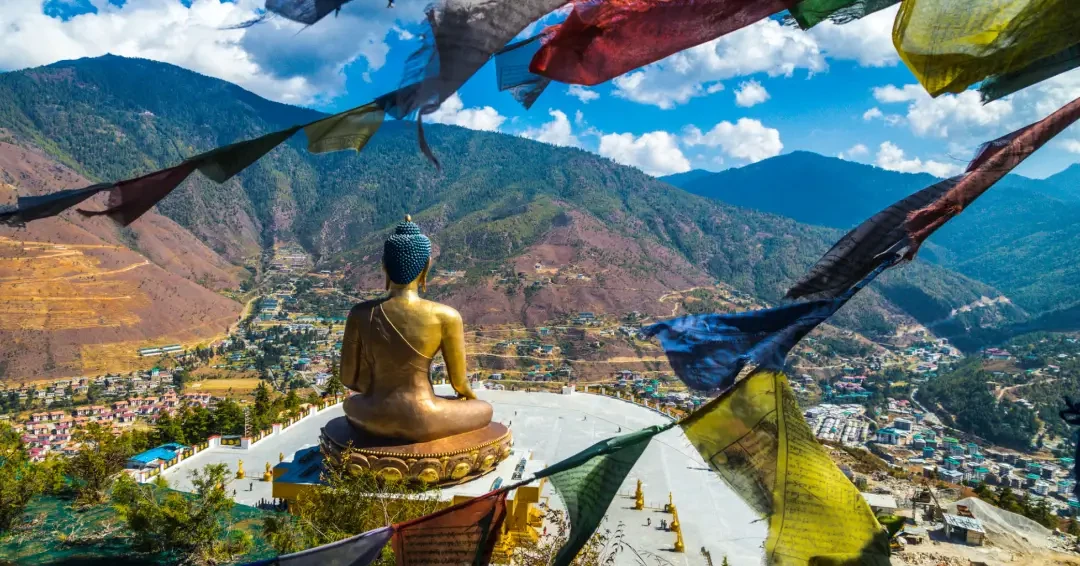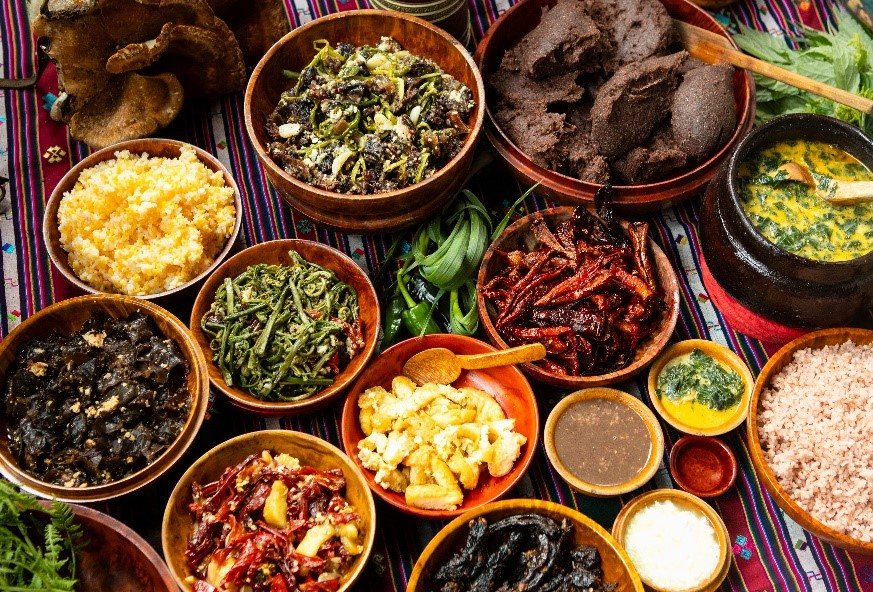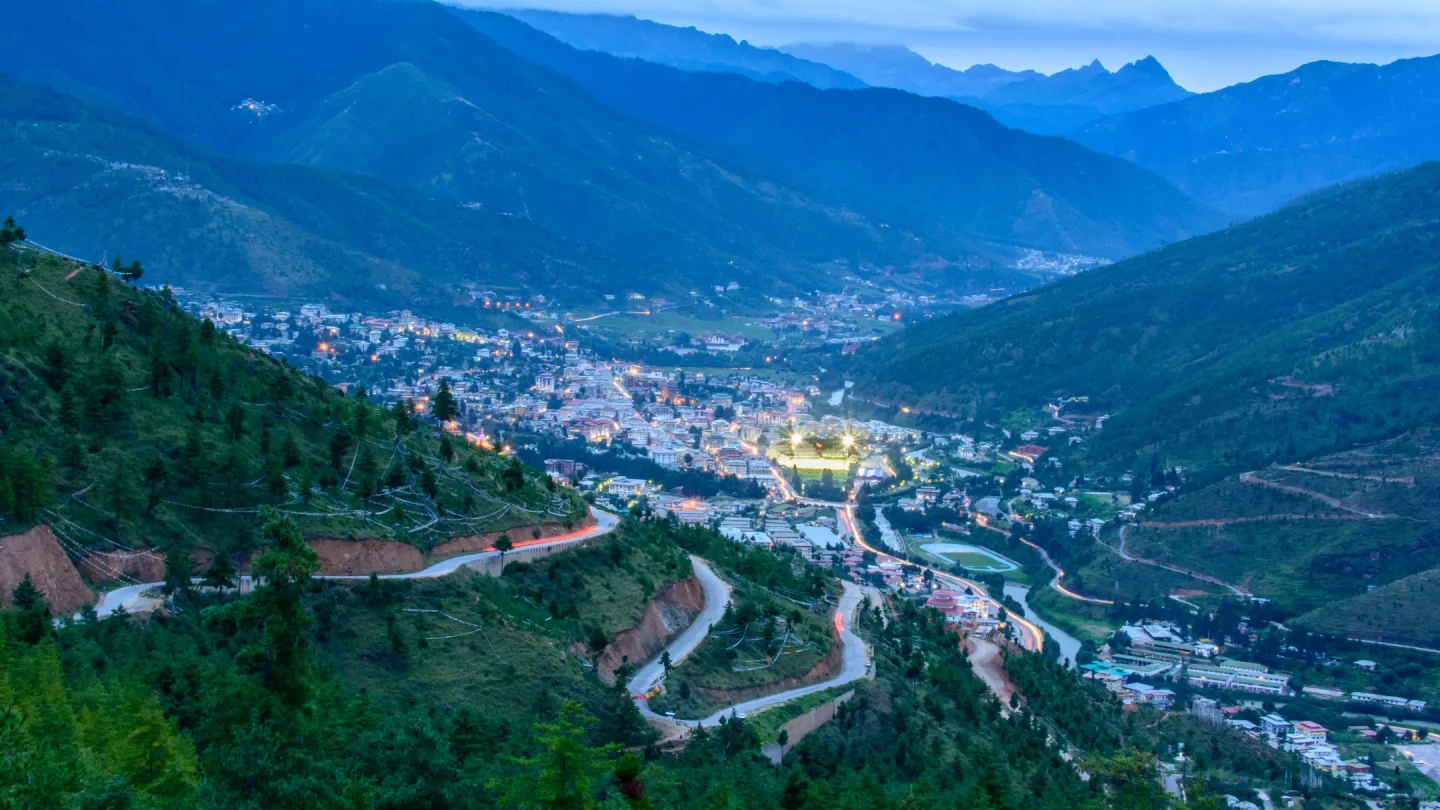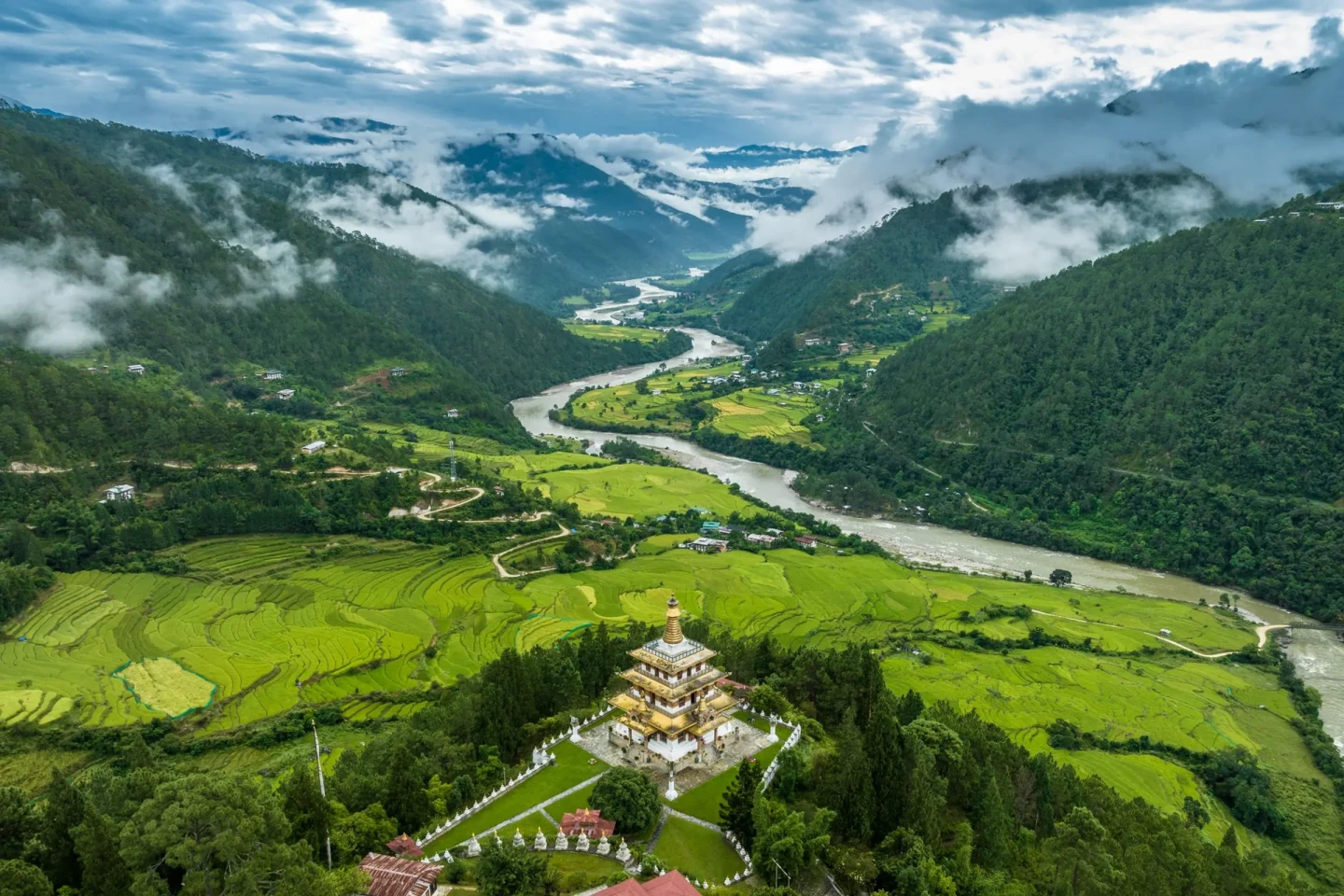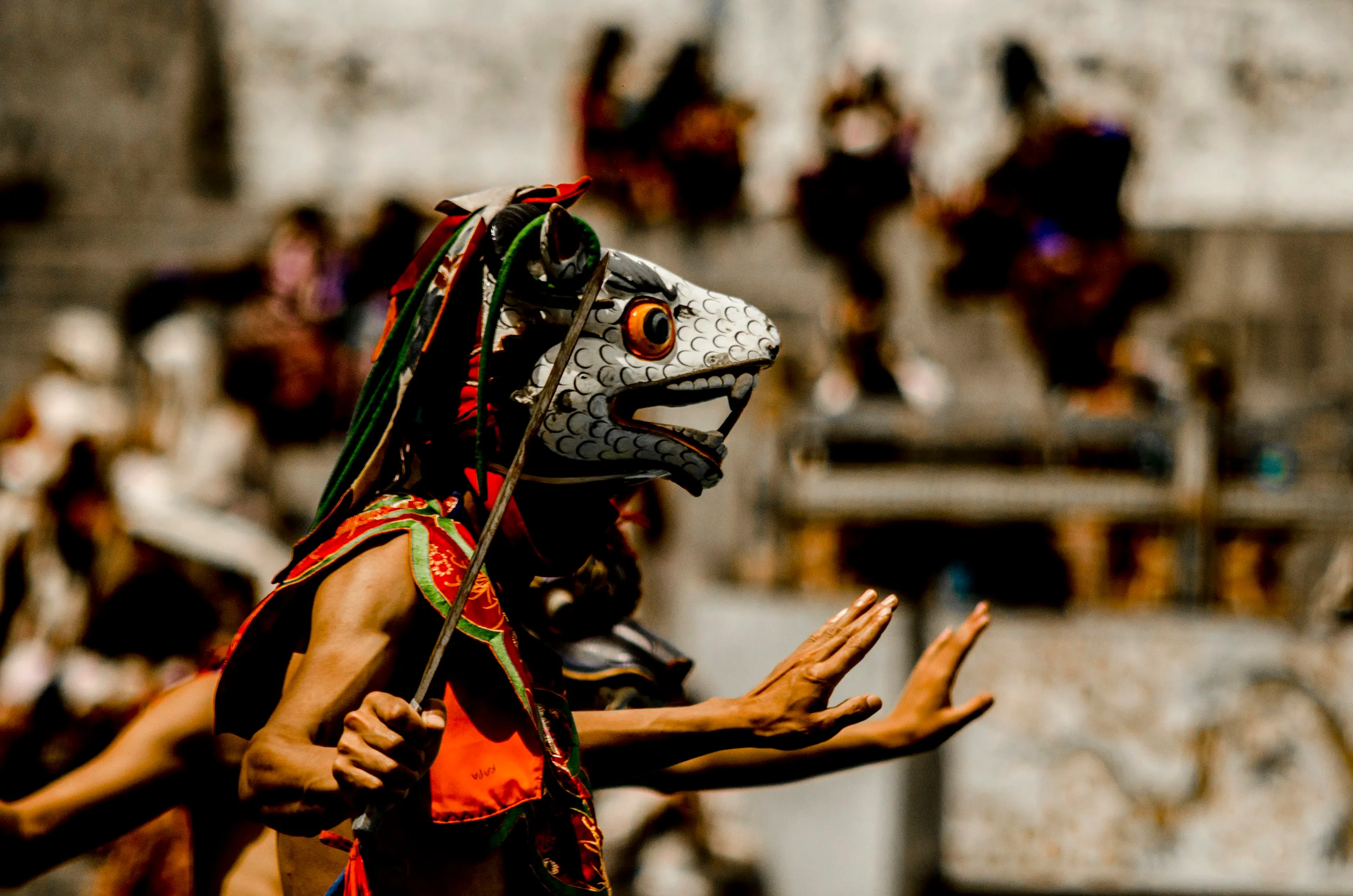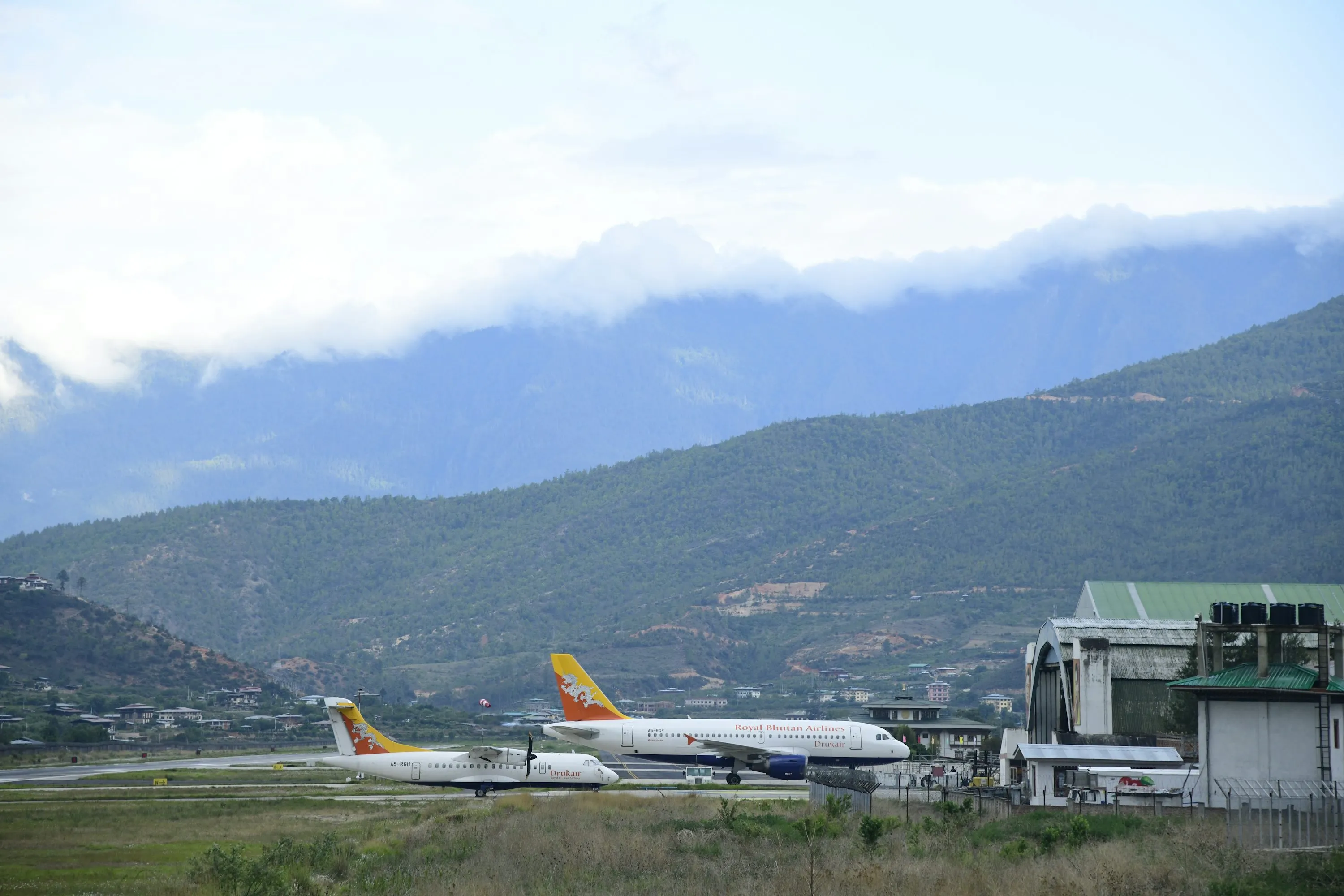Bhutan, often called the "Land of the Thunder Dragon," is a landlocked nation where ancient traditions harmoniously coexist with a commitment to environmental preservation and spiritual well-being, much like how Qatar blends its rich Bedouin heritage with cutting-edge innovation driven by its natural resources. While Qatar thrives as a peninsula nation with vast deserts, skyscrapers piercing the sky, and a economy fueled by oil and gas, Bhutan remains a mountainous haven with no towering buildings, emphasizing sustainable development over rapid urbanization. The diplomatic relationship between Qatar and Bhutan, though not marked by direct embassies, is built on mutual respect within the framework of the United Nations, where both countries advocate for global peace and cultural preservation; Qatar's focus on international mediation echoes Bhutan's philosophy of Gross National Happiness, fostering potential for deeper ties in areas like education and tourism. For Qatari travelers accustomed to luxury and efficiency, Bhutan presents a compelling invitation to slow down and immerse in unspoiled nature, vibrant festivals, and a culture rooted in Buddhism, providing a refreshing escape that rejuvenates the soul without the distractions of commercial excess. This guide is crafted to equip you with a thorough understanding, ensuring your journey is not only practical but also culturally enriching, transforming unfamiliarity into a cherished adventure.
Visa and Entry Requirements
Bhutan's tourism is governed by a controlled policy designed to protect its environment and culture, mandating that all foreign visitors, including those from Qatar, must book their trips through licensed Bhutanese tour operators. This approach ensures high-quality, low-impact travel, where the operator handles most logistics, including visa applications. For Qatari tourists, obtaining a visa involves an eVisa process that is straightforward yet requires advance planning; your chosen tour operator will submit your application to the Department of Immigration on your behalf, typically requiring a scanned copy of your passport valid for at least six months beyond your intended stay, a recent passport-sized photo, and proof of your tour booking. The visa is issued upon approval, usually within 72 hours, and must be presented at the port of entry, such as Paro International Airport. Payment for the tour, which includes the Sustainable Development Fee (SDF), is integral to securing the visa, as the fee must be paid upfront to the Tourism Council of Bhutan before the visa is processed. The SDF, currently set at USD 100 per person per night for international visitors like Qataris, contributes to Bhutan's free education, healthcare, and conservation efforts, effectively increasing the overall cost of your trip but ensuring that your visit supports the nation's sustainable goals. This fee does not apply to children under six, and those aged six to eleven pay half, making family travel more accessible while emphasizing Bhutan's commitment to balanced tourism that benefits locals without overwhelming resources.
Travel Routes from Qatar to Bhutan
Traveling from Qatar to Bhutan involves connecting flights, as there are no direct routes from major Qatari cities like Doha to Paro, Bhutan's sole international airport. The most common itineraries depart from Hamad International Airport in Doha, transiting through hubs such as Delhi in India, Kathmandu in Nepal, or Bangkok in Thailand, before boarding flights operated exclusively by Bhutan's national carriers, Drukair (Royal Bhutan Airlines) or Bhutan Airlines. For instance, Qatar Airways, a familiar choice for Qatari travelers, offers seamless connections to these transit points, with flight durations from Doha to Delhi around four hours, followed by a two-hour hop to Paro on Drukair. Paro International Airport is renowned for its challenging approach amid the Himalayas, limited to visual flight rules during daylight hours and susceptible to weather disruptions like fog or strong winds, which can cause delays or diversions—realistic expectations include building flexibility into your schedule, perhaps adding a buffer day in the transit city. Booking should be done well in advance through your tour operator, who can coordinate with airlines to align with your itinerary, and it's advisable to confirm flight statuses frequently, especially during monsoon seasons when delays are more common. This journey, while indirect, heightens the sense of arriving in a remote paradise, contrasting sharply with Qatar's efficient air travel infrastructure.
Best Time to Visit and Seasonality
Bhutan's climate is diverse due to its varied elevations, ranging from subtropical lowlands to alpine highlands, creating four distinct seasons that significantly influence travel experiences. Spring, from March to May, brings mild temperatures averaging 15-25°C in valleys, with blooming rhododendrons and clear skies ideal for trekking and sightseeing, though occasional showers may occur; this period aligns with festivals like the Paro Tshechu, offering cultural immersion without overwhelming crowds. Summer, June to August, is the monsoon season with heavy rainfall, humid conditions up to 30°C, and risks of landslides, making it less favorable for Qatari travelers unaccustomed to wet weather, yet it features lush greenery and fewer tourists for those seeking solitude. Autumn, September to November, is widely regarded as the prime time, with crisp air (10-20°C), vibrant festivals such as the Thimphu Tshechu, and excellent visibility for Himalayan views, balancing comfort with activity options like hiking. Winter, December to February, sees colder temperatures dropping to 0-10°C or below in higher areas, with possible snow, suiting those interested in serene landscapes and birdwatching, though passes may close. For Qatari visitors, who may prefer avoiding extreme heat or cold similar to their desert climate, October and November are recommended for optimal weather, festival highlights, and moderate crowds, allowing for thorough trip planning around cultural events and outdoor pursuits.
Money, Costs, and Payment Methods
The official currency in Bhutan is the Ngultrum (BTN), pegged one-to-one with the Indian Rupee, which is also widely accepted, providing a straightforward exchange for Qatari travelers familiar with diverse currencies. Exchanging Qatari Riyals directly is uncommon, so it's prudent to carry US Dollars for conversion at banks or authorized forex counters in major towns like Thimphu and Paro, where rates are favorable; ATMs are available in urban areas from banks like Bhutan National Bank, accepting Visa and Mastercard, but reliability varies in remote regions, so withdrawing sufficient cash early is advisable. Credit cards are accepted in upscale hotels and some shops, but cash remains king for local markets and tips, with limited POS machines outside cities. Tour prices, mandated by the government, typically cover accommodations, meals, transportation, guides, and the SDF, starting around USD 250 per person per day in peak seasons, but extras like alcoholic beverages, souvenirs, personal expenses, and gratuities (around USD 10-15 per day for guides and drivers) are out-of-pocket. This all-inclusive structure simplifies budgeting for Qataris, ensuring transparency while highlighting Bhutan's focus on value over volume in tourism expenditures.
Health, Safety, and Travel Insurance
Health considerations in Bhutan revolve around its high-altitude terrain, where elevations often exceed 2,500 meters, posing risks of altitude sickness with symptoms like headaches, nausea, and fatigue; Qatari travelers, coming from sea-level Doha, should ascend gradually and consult physicians beforehand. Recommended vaccinations include Hepatitis A, Typhoid, and Tetanus, with medical facilities adequate in cities but basic elsewhere, necessitating comprehensive travel insurance that covers emergency evacuation by helicopter, as roads can be inaccessible. Bhutan is exceptionally safe with low crime rates, reflecting its Buddhist values, but minor risks include stray dogs potentially carrying rabies and uneven paths during hikes, requiring vigilance and appropriate footwear. Travel insurance is not just advisable but essential, providing peace of mind for unforeseen issues in this remote destination, ensuring Qatari visitors can focus on enjoyment rather than worries.
Cultural Etiquette and Social Expectations
Bhutanese society is deeply rooted in Buddhist principles of respect, humility, and harmony, requiring visitors to adapt behaviors for meaningful interactions. In temples and monasteries, modesty is paramount—cover shoulders and knees, remove hats and shoes before entering, and avoid pointing at statues or monks, as it is considered disrespectful; circumambulate sacred sites clockwise, mirroring local practices. Socially, patience and humility are valued over assertiveness, so Qatari travelers, known for their hospitality, might find parallels in Bhutan's warm greetings but should tone down directness, opting for polite inquiries. Public displays of affection are frowned upon, and loud voices in sacred spaces disrupt the serene atmosphere; embracing these nuances fosters genuine connections, allowing Qataris to appreciate Bhutan's emphasis on collective well-being over individual expression.
Connectivity, SIM Cards, Internet Access
Connectivity in Bhutan has improved significantly, with Wi-Fi available in most hotels and cafes in urban areas like Thimphu, though speeds may vary and outages occur in remote valleys. For reliable mobile access, purchasing a local SIM card upon arrival at Paro Airport is recommended; providers like B-Mobile (Bhutan Telecom) and TashiCell offer tourist packages with data, calls, and texts, starting from BTN 200 for basic plans, easily activated with your passport. Coverage is strong in populated regions via 4G, but spotty in highlands, so downloading offline maps is wise. Qatari apps may work without issues, but a VPN can ensure unrestricted access if needed, enhancing communication for travelers sharing their Himalayan experiences back home.
Language and Communication
Dzongkha is Bhutan's national language, but English is prevalent in tourism, education, and government, making it the primary medium for guides and services, easing interactions for English-speaking Qataris. Arabic-speaking guides are rare, as tourism caters mainly to English users, but operators can arrange multilingual support if requested in advance. For those with limited English, using simple phrases, gestures, and translation apps facilitates communication, while learning basic Dzongkha greetings like "Kuzuzangpo la" builds rapport. This linguistic landscape underscores Bhutan's openness to global visitors, bridging cultural gaps through shared respect.
Packing and Preparation Advice
Packing for Bhutan demands consideration of its Himalayan climate, with layers essential for fluctuating temperatures—bring breathable cotton for days, warm fleeces and jackets for evenings, and waterproof gear for rain. Sturdy walking shoes suit uneven terrain, while modest clothing like long pants and scarves respects religious sites; include medications for altitude, allergies, and motion sickness, plus sunscreen, hats, and insect repellent. Power adapters for 230V round-pin sockets, reusable water bottles for hydration, and portable chargers address occasional outages. For Qatari travelers unused to cold, thermal underlayers and gloves prepare for higher elevations, ensuring comfort in this diverse environment.
Bhutan’s Unique Tourism Philosophy
Bhutan's tourism is shaped by Gross National Happiness (GNH), a holistic philosophy prioritizing spiritual, cultural, and environmental well-being over economic growth, leading to policies that limit visitor numbers through the SDF and mandatory tours. This "high value, low volume" approach preserves Bhutan's pristine landscapes and traditions, avoiding mass tourism's pitfalls, and appeals to Qataris seeking authentic experiences. By capping development, Bhutan maintains its identity, inviting visitors to contribute positively rather than consume excessively.
Mindset and Expectations for Visitors
Adjusting to Bhutan's slower pace is key, where infrastructure like winding roads and modest hotels contrasts Qatar's modernity, emphasizing nature and spirituality over luxury. Expect no nightlife or shopping malls, but profound cultural depth, fostering mindfulness and appreciation for simplicity in this tranquil kingdom.
Food and Dining Culture
Bhutanese cuisine is hearty and spicy, featuring staples like red rice, chili-infused ema datshi, and cheese-heavy dishes, reflecting a culture of communal meals and hospitality. Alcohol like ara and butter tea (suja) play social roles, with dining etiquette encouraging moderation and gratitude, offering Qataris a flavorful introduction to Himalayan sustenance.
Festivals, Religion, and Sacred Places
Religion permeates Bhutan, with Buddhism guiding daily life and festivals like Tshechus showcasing masked dances honoring Guru Rinpoche. Visitors must observe quietly, dressing modestly at sacred sites, gaining insights into spiritual harmony that enrich cultural understanding.
Hidden Challenges and Practical Inconveniences
Travel in Bhutan includes winding roads, potential power outages, and flexible itineraries due to weather, viewed as part of its authentic charm, cultivating patience and resilience among visitors.
Shopping and Souvenirs
Shopping focuses on artisanal textiles, crafts, and incense from markets, with minimal bargaining and emphasis on authenticity, providing meaningful mementos without commercial excess.
Altitude Awareness and Physical Preparedness
Altitude affects variably, with precautions like hydration, slow ascent, and rest mitigating symptoms, preparing Qataris for physical demands through acclimatization.
Security, Safety, and Emergency Information
Bhutan is secure with low threats; emergencies dial 113 for police, 112 for ambulance, and Qatari embassy support via India, respecting local laws for a worry-free stay.
Photography and Drones
Photography is allowed respectfully, avoiding interiors of religious sites; drones require rare permits, generally prohibited for tourists to preserve sanctity.
What Bhutan Does Not Have
Bhutan lacks skyscrapers, fast-food chains, casinos, and malls, enhancing its allure as a sanctuary of tranquility and tradition.
Important Questions to Ask Before Booking a Tour
Before confirming your Bhutan tour, inquire about guide expertise and language skills to ensure seamless communication, perhaps requesting English proficiency given the scarcity of Arabic options. Discuss itinerary flexibility for personal interests like festivals or treks, and clarify accommodation standards, from cozy lodges to luxury resorts, to match your comfort expectations. Ask about meal inclusions, including dietary accommodations for halal preferences or allergies, and emergency protocols, such as medical access and evacuation plans. Probe into SIM card arrangements for connectivity, tipping customs (typically voluntary but appreciated), and insurance requirements, ensuring comprehensive coverage. These questions empower Qatari travelers to tailor their experience, fostering confidence in the operator's reliability.
Conclusion
In reflection, Bhutan stands as a rare sanctuary for Qatari travelers yearning for cultural immersion, breathtaking nature, and spiritual serenity, diverging from fast-paced vacations to offer profound, transformative journeys that linger in the heart long after departure.





